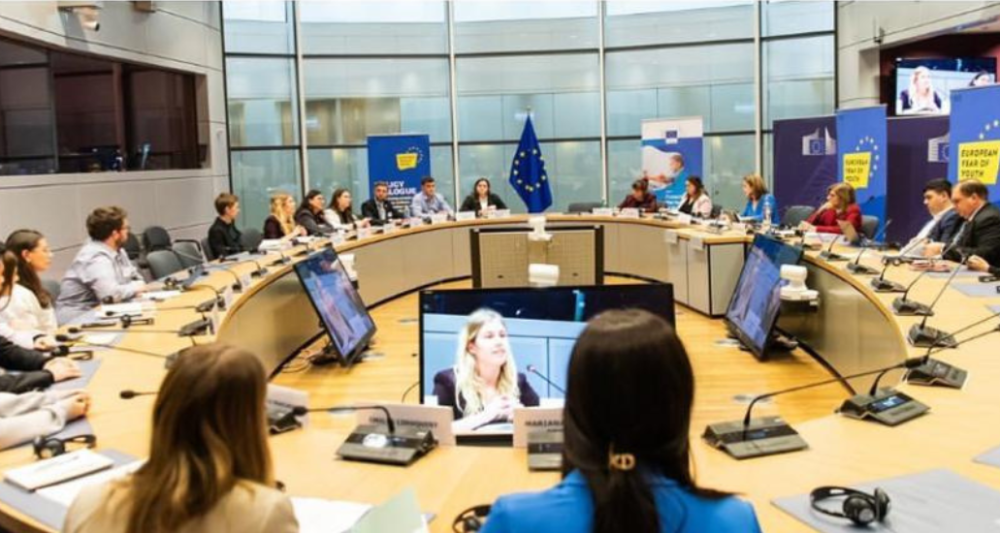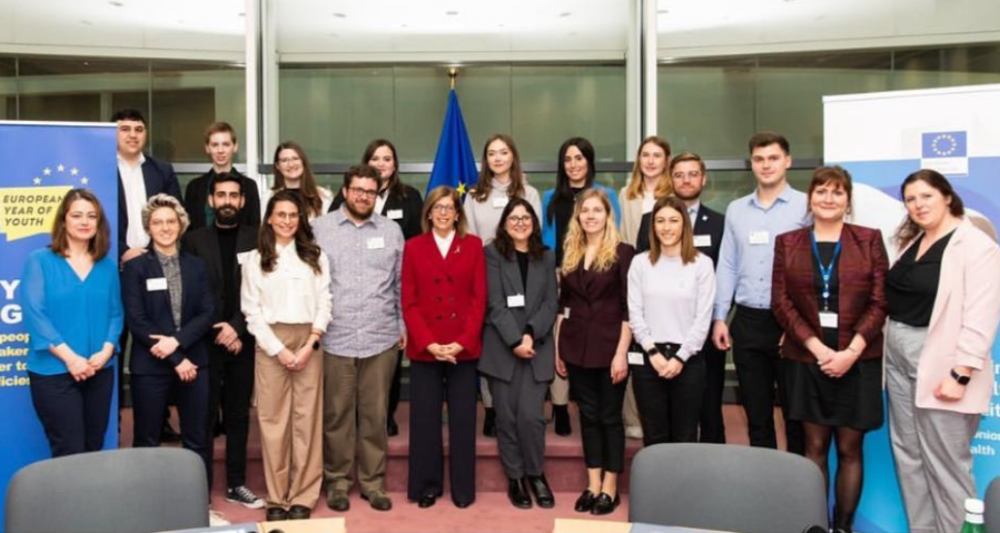On 22 February, I participated as a representative of the Youth Committee of the European Disability Forum in the event “Policy Dialogue #26: “Towards a comprehensive approach to Mental Health”, with Commissioner Stella Kyriakides.”
Blog post written by Elisa Marino, EDF Youth Committee observer who took part to the meeting with Commissioner Stella Kyriakides.
During the meeting with the European Commissioner for Health, I had the opportunity to talk about experiences and expectations regarding services to Mental Health, and to offer suggestions to the Commissioner.

My speech and recommendations to Commissioner Kyriakides focused on the lack of accessibility of mental health services experienced by persons with disabilities:
“Persons with disabilities, particularly young persons with disabilities, face many obstacles when it comes to accessing mental health services. Obstacles such as: stigma, prohibitive costs, communication barriers, physical barriers, prejudice, and lack of knowledge of disability by experts.
The U.N. Convention on the Rights of Persons with Disabilities that the European Union has ratified, affirming the right to health, necessarily goes to include the right to mental health. Nevertheless, services dedicated to mental health and well-being are not accessible for people with disabilities. The materials provided by centers and experts do not help breaking down communication barriers. Indeed, there is a lack of information and awareness materials in Braille, or easy to access for persons with disabilities; people working in the field are hardly familiar with communicative methods that allow persons with disabilities an easy and real communicative exchange with them (e.g., sign language).
Communicative and physical barriers really need to be broken down in order to ensure the rights of persons with disabilities. Above all, however, there is a general ignorance about disability among mental health experts. This lack of knowledge, on the part of psychologists and components of this field constitutes, perhaps, the main obstacle to the effective enjoyment of the right to mental health, which therefore includes the possibility of taking advantage of the system of mental health supports and aids. There is, therefore, a need to ensure that mental health experts are trained on the disability model that puts the person at the center and thus on the human rights model of disability. This training must also be extended to school teachers.
The issue of health falls, according to the EU Treaties, within the competence reserved for the states. While I am aware of this, I ask that the Commission remind the states of their duties under the 2006 UN Convention, which the Union and its Member States have ratified, and that it itself take into account in its policy work the need to make mental well-being services accessible in all respects, for young people with disabilities, because without such accessibility, the right to mental health is not guaranteed and protected for young people and persons with disabilities.”

The Commissioner welcomed my speech with much interest and confirmed her commitment to do as much as possible to resolve this violation of the rights of people with disabilities.
For more information, please contact Loredana Dicsi, Membership, Internal Communication and Youth Officer, loredana.dicsi@edf-feph.org